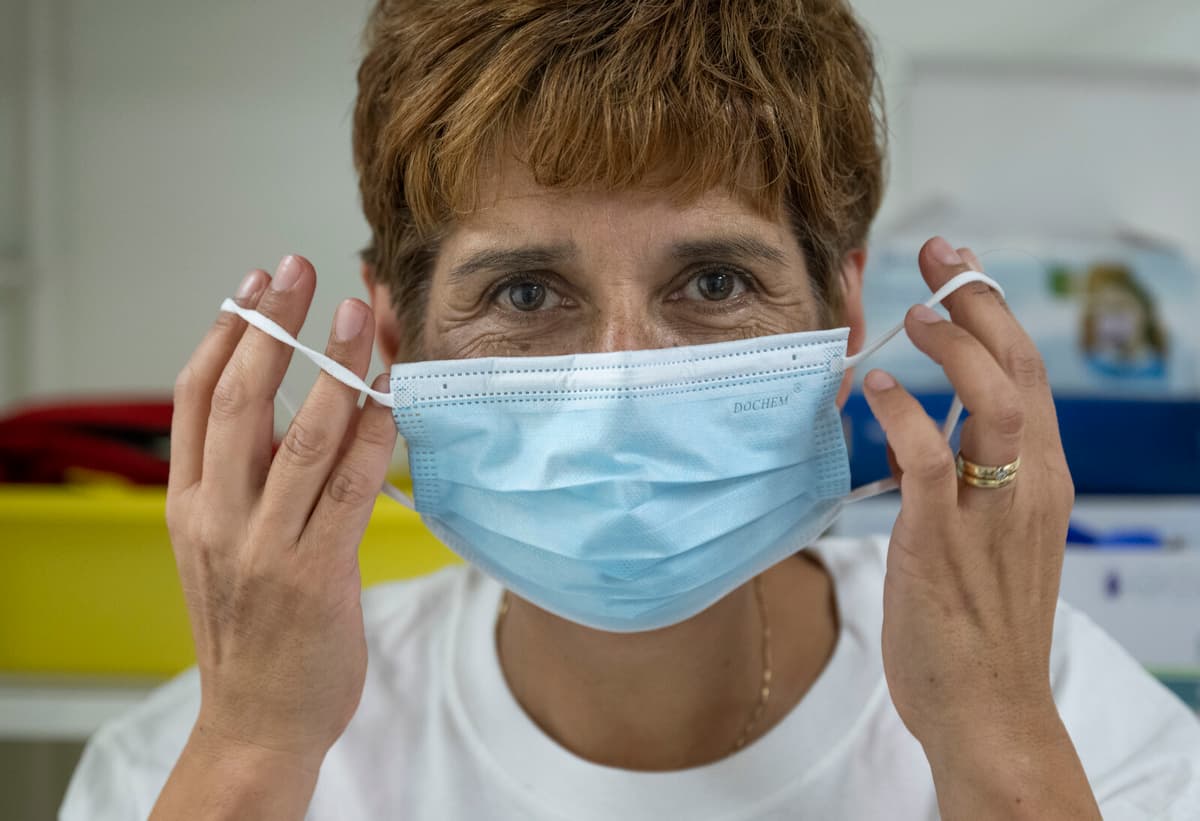A root canal can cost 10,000 kronor. It is money that many in these groups do not have, says Jazmina Asplund Gonzales, dentist at Doctors of the World's clinic in central Stockholm.
She comes here one evening a week to work voluntarily in addition to her regular dentist job. The clinic opens at 6 pm, but often patients show up in the sparsely furnished waiting room as early as 3 pm to get a queue number. Here, people from different backgrounds from various countries sit and hope to get someone to talk to about their symptoms.
Toothache, infections, or tooth loss are common problems. Since the clinic has very limited treatment options – there is no X-ray or dentist's chair – it is mainly about giving advice and guiding visitors further in regular dental care. And telling them about their rights.
If someone has an obvious infection, we can prescribe antibiotics. But currently, I cannot fill cavities or even remove tartar here, says Jazmina Asplund Gonzalez.
Hard hit
When the Dental Care Investigation was presented in October, it was received with mixed feelings by Hannah Laustiola, secretary-general of Doctors of the World. The investigator had been tasked with submitting proposals on how the special rules for asylum seekers and certain individuals without residence permits could be removed. The goal was for these individuals to pay for their own dental care. By abolishing subsidies, the state would save money, was the idea.
But since international directives grant the right to emergency dental care, and most in the group cannot pay for dental care out of their own pocket, the investigation proposes that those affected should be able to seek financial assistance instead. But it may mean that the person needs to pay upfront and then seek reimbursement.
The risk is that even this proposal will hit the group hard. Many lack the financial means and cannot afford to pay for dental care, says Hannah Laustiola.
Fear of disclosure
Doctors of the World's clinic in Stockholm is open two evenings a week. In the premises, a medical clinic with, among other things, doctors and nurses is offered one evening. The other evening, a maternity clinic, psychosocial support, and access to a dentist are offered.
According to Annie Palm, regional coordinator at the organization, all sorts of people come to the clinic. The reason they turn to this clinic and not to a regular dentist or healthcare center varies.
There are many who are established in society and speak Swedish, but who do not have a current work or residence permit. You can't tell by looking at someone if they are undocumented, says she.
At Doctors of the World, care is free of charge, but often patients need to be referred to regular care. However, many do not go to regular care, partly due to fear of receiving a bill they cannot pay. When new rules for subsidized care come into effect, the pressure on their clinic is likely to increase.
The staff at Doctors of the World's clinic have also noticed fear among visitors after the proposal for extended information duty. Healthcare professionals, along with staff in schools, social services, and libraries, will be exempt from the information duty regarding individuals who are in Sweden without permission. But the proposal itself has created fear and anxiety.
We already see great anxiety among our visitors, and many are already being denied the care they are entitled to. Others dare not turn to regular care for fear of being arrested by the police and come to us instead.
There is strong scientific evidence that oral and dental health is linked to many other diseases, such as cardiovascular disease. The risk is high that those who avoid going to the dentist due to fear or cost will eventually end up in care with much more severe problems.
The purpose of abolishing subsidized dental care is to save money. But Hannah Laustiola does not believe that will be the effect.
These individuals will often refrain from seeking care in time, which in the long run will lead to increased costs for society, says Hannah Laustiola.
Petra Hedbom/TT
Facts: Care that cannot wait
TT
According to the preparatory work for the law, the concept of "care that cannot wait" includes care and treatment of diseases and injuries in cases where even a moderate delay is deemed to be able to have serious consequences for the patient. This also includes follow-up measures for such care and psychiatric care.
The term "care that cannot wait" also implies offering care at an early stage to prevent or counteract the development of a more severe disease state and the need for more extensive treatment.
Source: The National Board of Health and Welfare.






